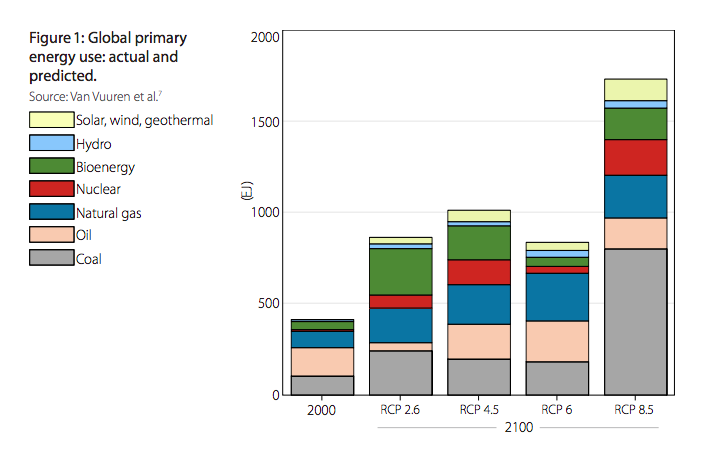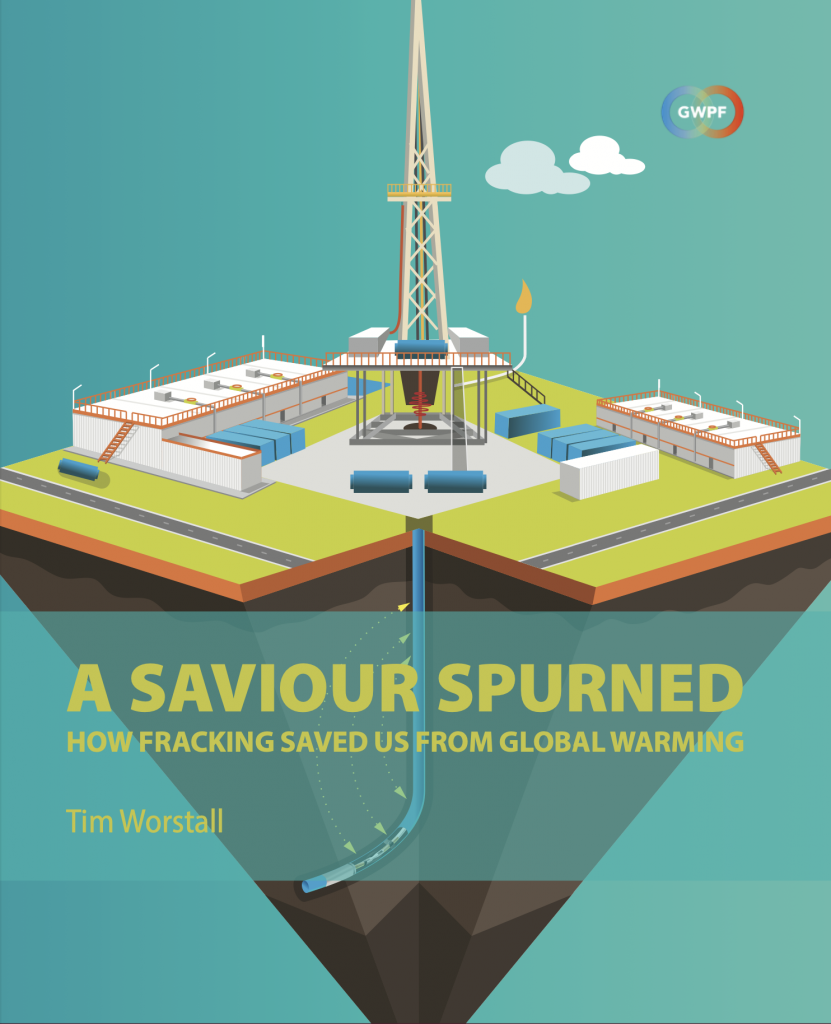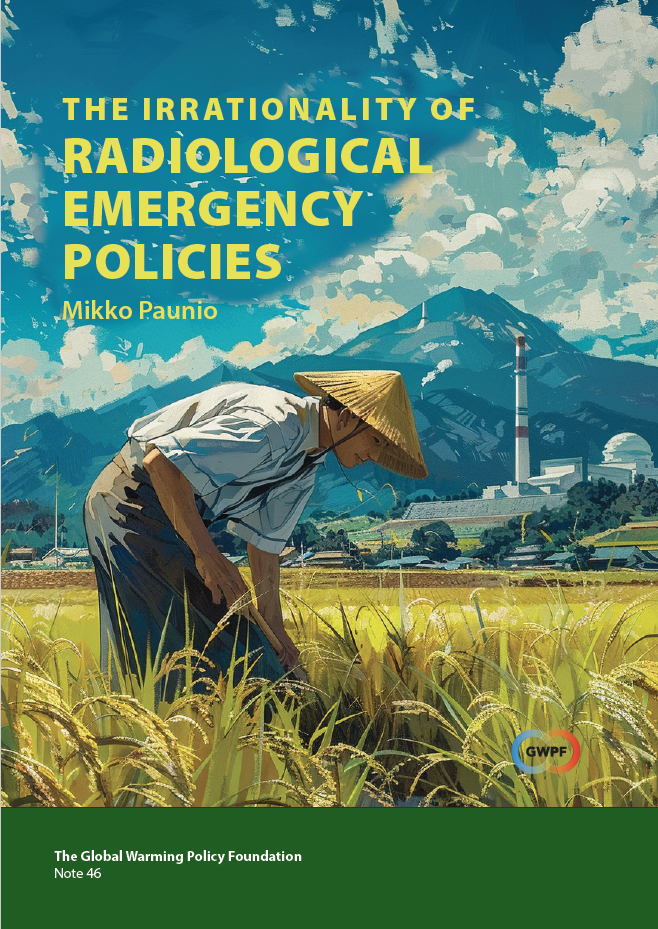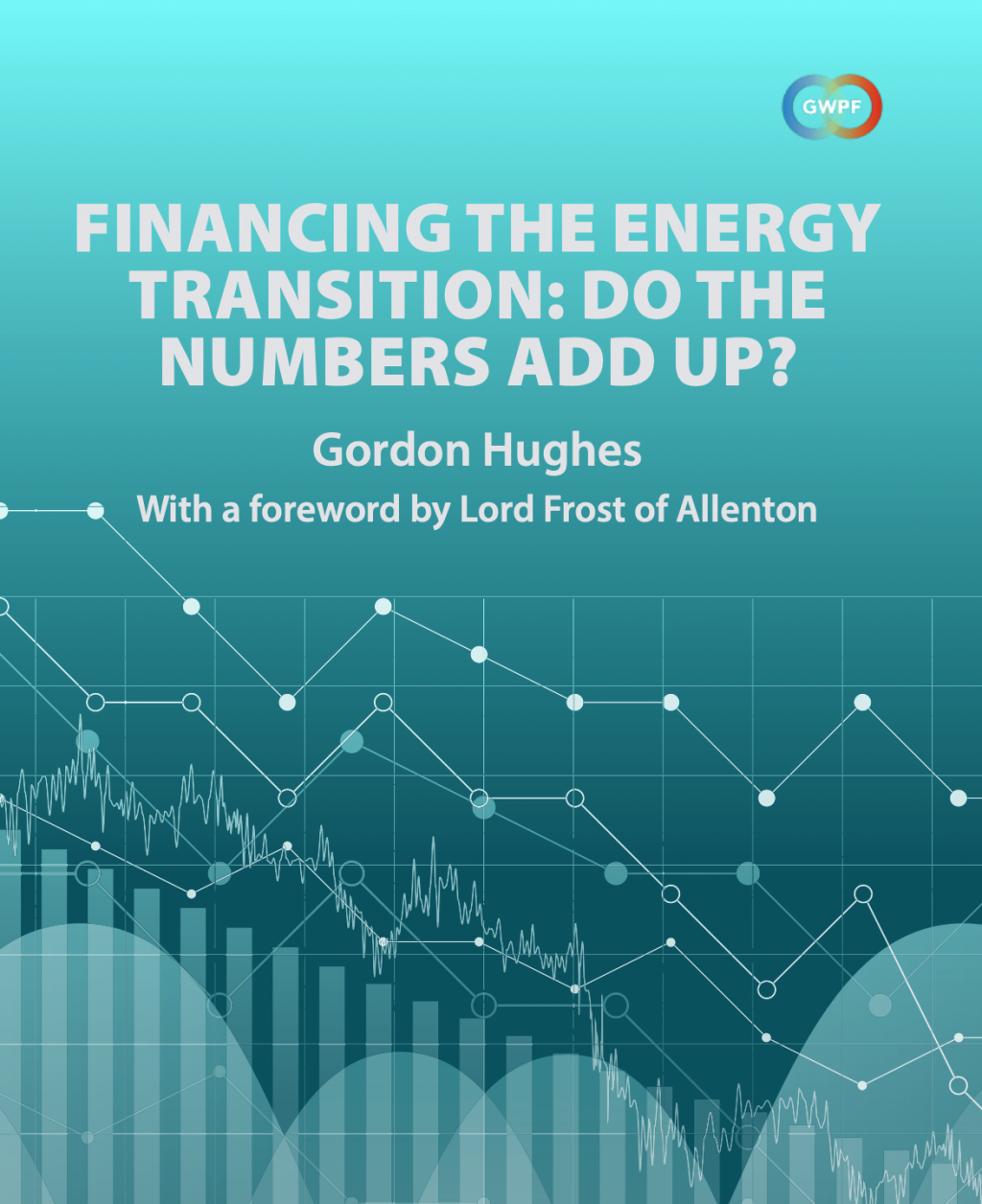Many climate modellers are still using false assumptions that are no longer credible
London, 7 May: A new paper published by the Global Warming Policy Foundation reveals that the shale revolution and the global shift from coal to gas has made the worst global warming scenario, known as RCP8.5, highly unlikely.
The paper, written by Tim Worstall, shows that the so-called RCP8.5 scenario assumes a huge expansion of global coal consumption in coming decades, ignoring the shift from coal to unconventional gas, the use of which is lowering CO2 emissions in most countries.
The ‘rising coal’ assumption on which the RCP8.5 climate model is based is implausible in the first place, but has now been shown to be false: the shift from coal to unconventional gas means that the world is on a much lower emissions trajectory than worst case scenarios assume.
However, many climate scientists continue to use – or misuse – the RCP8.5 scenario, claiming that it represents a plausible future under “business as usual” CO2 emissions.
Every year, thousands of scientists adopt it to make scary claims about future climate disasters while environmental journalists report these misleading claims to an unsuspecting public, unaware that the claims are based on a non-credible assumption.
This week, for example, news media around the world were reporting that the Antarctic faced a “tipping point” with “irreversible” loss of ice. Yet, this prediction, as so many others, is based on a RCP8.5 model that misuses a “coal business as usual” scenario.
GWPF is calling on responsible scientists and journalists to adopt a more credible and questioning approach to reporting claims that are based on non-credible energy scenarios.
Tim Worstall said:
“The idea that we would ignore shale gas, which is both cheaper and cleaner than coal, was always absurd. But with the impact and results of the shale revolution behind us, we now have the proof. It’s clear that we are never going to see the high coal emissions that RCP8.5 modellers predict.”
Dr Benny Peiser, GWPF director, said:
“Scaremongering can do enormous harm to people and society. Scientists and journalists should stop using completely unrealistic energy scenarios that are simply not credible.”
A Saviour Spurned: How fracking saved us from global warming can be downloaded here (pdf)




